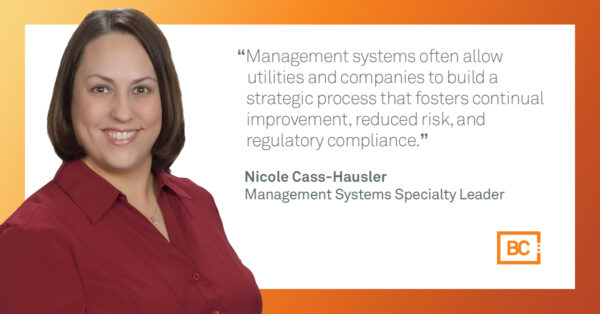2021 came to a close with additional regulatory changes and progress towards environmental goals.
In December, we saw:
- Ambitious greenhouse gas standards for passenger cars and light trucks. These standards aim to reduce climate pollution and improve public health while also saving drivers at the pump.
- A $1 billion investment to initiate cleanup and clear the backlog of underfunded Superfund sites across the country. This investment is the first of $3.5 billion total funding from the Bipartisan Infrastructure Law.
- The Lead Pipe and Paint Action Plan to support rapid progress towards replacing all lead pipes in the next decade.
In recent news, remarks from the Department of Justice indicate that companies should expect more robust investigations and enhanced enforcement policies moving into 2022 and beyond.
As 2022 begins, we highlight the following in this month’s Compliance News:
Ask an Expert: Management systems
Join BC’s Management Systems Specialty Leader Nicole Cass-Hausler as she shares insight into the proactive steps you can take toward building business value, managing risk, and creating long-term sustainability. Read “Ask an Expert”
WOTUS definition remains fluid
The EPA and Department of the Army Corps of Engineers posted proposed updates to the “waters of the United States” (WOTUS) definition.
Streamlined CWA permitting rule
The Army Corps of Engineers issued a final rule for reissuance and modification of nationwide permits under the Clean Water Act (CWA) for projects involving discharges of dredge or fill material to jurisdictional waters.



 While every facility or company has specific needs and challenges, investing time, energy, and budget into a
While every facility or company has specific needs and challenges, investing time, energy, and budget into a